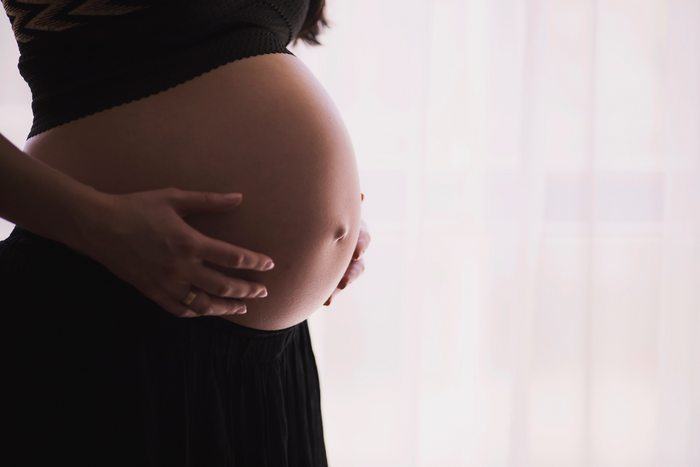SARS-CoV-2 infection is associated with an increased risk of preterm birth, but only for women infected in their final trimester, according to research published in the open access journal PLOS ONE. The study of over 5,000 pregnant women is one of the first to look at pregnancy outcomes for COVID-19 patients by trimester.

Credit: Freestocks, Unsplash, CC0 (https://creativecommons.org/publicdomain/zero/1.0/)
SARS-CoV-2 infection is associated with an increased risk of preterm birth, but only for women infected in their final trimester, according to research published in the open access journal PLOS ONE. The study of over 5,000 pregnant women is one of the first to look at pregnancy outcomes for COVID-19 patients by trimester.
There is limited data on pregnancy and COVID-19 infection. To date, studies have been small, generally limited to patients who are hospitalized, and have often not reported outcomes depending on infection during different stages of pregnancy. Noga Fallach and colleagues from the Kahn-Sagol-Maccabi Research and Innovation Center used anonymized data captured by Maccabi Healthcare Services in Israel to match 2,753 women who were infected during pregnancy with 2,753 women without reported COVID-19 infections. Their study ran from February 21, 2020 until July 2, 2021. Of the infected women, 17.4% got COVID-19 during the first trimester, 34.2% during the second and 48.4% during the third trimester.
COVID-19 infection in the first and second trimesters was not associated with increased risk of preterm birth. However, women infected in their third trimester were 2.76 times more likely to experience preterm birth (2.76, 95% CI 1.63–4.67) – while women infected after 34 weeks of gestation were over seven times more likely to experience preterm birth (7.10, 95% CI 2.44–20.61). There was a lower rate of waters breaking before labor began in infected women (39.1%) vs non-infected women (58.3%), and proportions of caesarean sections and baby loss were similar in both groups.
Because of the increased risk of preterm birth in women infected during late pregnancy, the researchers suggest that during their third trimester, and particularly after 34 weeks of gestation, women should be advised to distance and wear masks to reduce risk of infection.
Dr. Tal Patalon, head of Kahn-Sagol-Maccabi (KSM), the research and innovation center of Maccabi Healthcare Services in Israel adds: “The results are encouraging and reassuring that COVID-19 infection during pregnancy is not associated with any type of pregnancy loss. However, it should be remembered that the research group tested the COVID pre-Delta variants, and does not refer to the dominant variant today, which is Omicron. We continue to conduct research to provide real-world data and knowledge to the public and decision-makers.”
#####
In your coverage please use this URL to provide access to the freely available article in PLOS ONE: https://journals.plos.org/plosone/article?id=10.1371/journal.pone.0270893
Citation: Fallach N, Segal Y, Agassy J, Perez G, Peretz A, Chodick G, et al. (2022) Pregnancy outcomes after SARS-CoV-2 infection by trimester: A large, population-based cohort study. PLoS ONE 17(7): e0270893. https://doi.org/10.1371/journal.pone.0270893
Author Countries: Israel
Funding: The authors received no specific funding for this work.
Journal
PLoS ONE
DOI
10.1371/journal.pone.0270893
Method of Research
Observational study
Subject of Research
People
Article Title
Pregnancy outcomes after SARS-CoV-2 infection by trimester: A large, population-based cohort study
Article Publication Date
20-Jul-2022
COI Statement
The authors have declared that no competing interests exist.




